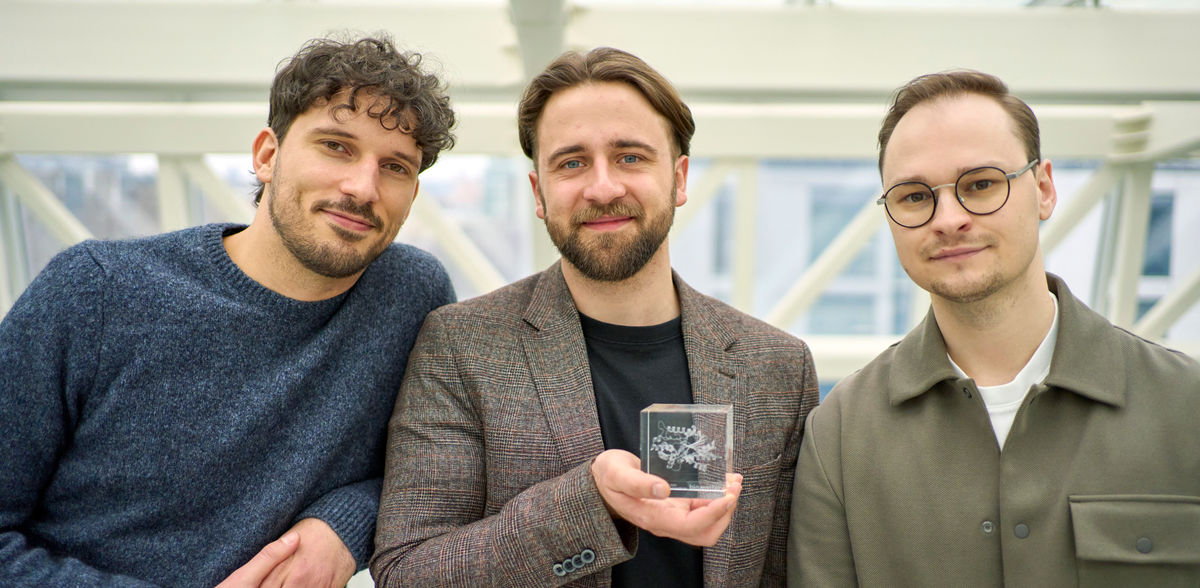AI-powered enzyme engineering platform that creates custom-designed enzymes from scratch
Lithuanian team in top 10 innovators of the Young Inventors Prize 2025
Advertisement
enzymes are critical to industries ranging from medicine and agriculture to chemical manufacturing, yet the traditional development of these biological catalysts relies on modifying existing natural enzymes. This top-down approach often limits efficiency and adaptability. Laurynas Karpus (30), Vykintas Jauniškis (29), and Irmantas Rokaitis (28) have co-developed a bottom-up AI and physics-driven platform that designs new enzymes, allowing for greater control, enhanced efficiency and faster innovation cycles. Their invention has earned them a place among the top ten global innovators, also known as Tomorrow Shapers, for the Young Inventors Prize 2025, selected from over 450 candidates by an independent jury.
Expanding the potential of enzyme design
Karpus, Jauniškis, and Rokaitis are founders of Biomatter, which has developed the Intelligent Architecture™ platform, an AI-powered tool that designs new enzymes from scratch instead of modifying existing ones.
Traditional engineering in this field is limited by natural templates, which often means that enzymes cannot be easily adapted for new applications. Biomatter’s platform takes a bottom-up approach, using AI to build custom enzymes that meet specific industry needs. By combining machine learning, physics-based modelling and real-world testing, the platform continuously improves its designs. The result is more efficient, scalable and produces tailored enzymes that enhance biomanufacturing, drug development and sustainable chemical production.
A machine-learning model
Karpus, Jauniškis, and Rokaitis met at Vilnius University’s Institute of Biotechnology, where they first explored AI-driven enzyme generation in 2017. Their early work led to the development of ProteinGAN, a machine-learning model that successfully generated functional enzymes. Encouraged by this achievement, they co-founded Biomatter in 2018, along with Rolandas Meškys and Donatas Repečka, to bring AI-powered enzyme design into the industry.
According to some market research, the global enzymes market is valued at over EUR 10 billion in 2025 and projected to reach EUR 15 billion by 2034. The demand for more efficient and scalable enzyme solutions is growing. Since its founding, Biomatter has collaborated with leading biotech and pharmaceutical companies, including Kirin, to develop a scalable production process for Human Milk Oligosaccharides (HMOs)–essential nutrients for infant health. They have also partnered with ArcticZymes Technologies, among others, to optimise enzymes used in gene therapy, vaccine production and bioprocessing.
“By creating the technology for new enzyme design that is only limited by our imagination, we are unlocking a key bottleneck in solving health and sustainability problems in the 21st century,” the trio explained.
The Young Inventors Prize celebrates worldwide innovators 30 and under using technology to address global challenges posed by the United Nations Sustainable Development Goals (SDGs). The Lithuanian team’s invention supports SDG 3 (Good health and well-being) and SDG 9 (Industry, Innovation, and Infrastructure), contributing to more efficient enzyme development that benefits healthcare, industry and sustainability.
Other news from the department business & finance
Most read news
More news from our other portals
Something is happening in the life science industry ...
This is what true pioneering spirit looks like: Plenty of innovative start-ups are bringing fresh ideas, lifeblood and entrepreneurial spirit to change tomorrow's world for the better. Immerse yourself in the world of these young companies and take the opportunity to get in touch with the founders.






















































